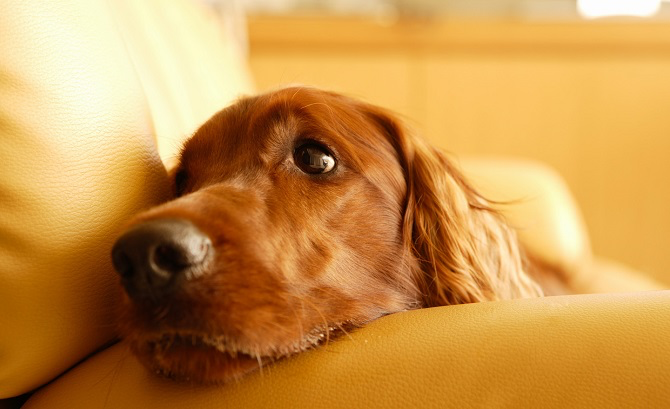Christmas is a big holiday season in the Western hemisphere. We have more time to give to our pets, which is good, but can also create problem behavior if we are not careful. Having more time at their disposition means that most dog owners spend more time with their dogs—longer walks, maybe a bit more training, but most of all much more time together.
All organisms are more or less sensitive to routine changes—that’s a survival mechanism—and our dogs are no exception. The children staying home from school increases the household activity level and implies some stress. Many dogs do not respond well to that. Some of them become restless, hyperactive.
Another problem occurs with being home alone, which our statistics shows clearly. If June-July and December are low seasons, then August and January are high seasons for canine problem behavior. Many dogs react poorly when school and work routines set in again after having been together with their owners almost 24-7 for a longer period. From one day to the other, without any explanation (for them) all the razzmatazz goes away, and they are left home alone. After having been extremely busy for a period, unexpectedly nothing happens around them.
From having had company around the clock to being left alone eight hours a day, or from having been active most of the day to suddenly having nothing to do, creates problems.
What can we do to prevent our dogs from developing behavior problems during Christmas holidays?
The time we spend with our dogs should be quality time more than quantity time (and this applies to all relationships). More time during the long holidays is good because we can focus on training our dogs in some skills, which we had wished we could have done, but couldn’t because of our busy working schedule.
To prevent home alone problems from showing up after the holiday, we should maintain periods during the day in which the dog is unattended. That will also prevent the worst of the hyperactive behavior that may develop due to the higher level of stimulation. Instruct the children to leave the dog alone at set times and explain to them why this is important.
As to what you can do with your dog, avoid the hollow, stressing activities like ball throwing and chasing. Focus on the more meaningful searching games instead—nose work or scent detection as you prefer to call them. These are activities that tire the dog without creating hyperactive behavior. You can even teach your children these searching games. They will spend some fun times with their dogs developing a healthy relationship. It is my experience that children are great with animals if we, adults, give it the necessary time to instruct them correctly.
If you travel on your holiday, remember that boarding a dog is stressful for the dog independently of the quality of the boarding venue. The best will provide suitable conditions for the dog to satisfy its needs for contact and exercise, but it is still a break in the usual routine. Be prepared to reintroduce the household routines when you return from what I hope has been an enjoyable holiday. It does not need to be difficult if you are aware of it and do it systematically.
Other pets than dogs are also affected by our holidays. Cats may become extremely restless during the holidays and seek refuge. Horses may show stereotypies when returning to the pre-holiday routines if you have spent much more time with them. Even parrots have shown some problem behavior because of the disruption of the daily schedule.
It’s curious how our minds focus on irrelevant contexts and forget essential ones. For example, no canine has evolved to expect food presented at set times, and yet most dog owners insist in serving their dogs the daily rations by the clock. On the other hand, no canine has evolved to see their family-pack increase/decrease their level of activity dramatically from one day to the other (like with holidays) or to be moved suddenly to an unfamiliar location— and yet many dog owners don’t even give it a thought.
Our responsibility toward our dog is a whole year activity (as it is to be a parent). To love those we are responsible for means to provide them with what they need so that they can develop harmoniously. To love is a full-time job with no time off allowed.
Please, share this link with your dog owner friends; and with your clients, if you’re a dog trainer. It would be wonderful if we’d go out of business in what concerns treating problem behavior in pets, wouldn’t it? Alas, I don’t think that to be a realistic expectation anytime soon, but we can all do our part to help it move in the right direction.
Enjoy your holiday and keep smiling. Yes, life is great!
Featured image: Dogs are sensitive to routine changes. Be careful with how you handle your dog during the big holidays, or you’ll risk serious problems when the children go back to school, and you go back to work.
